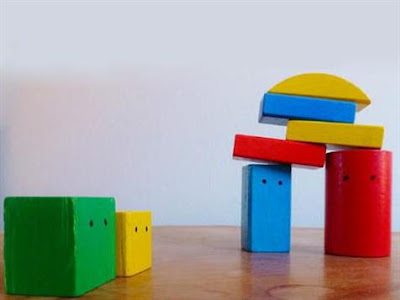Learning what you need to know when working in the arts can be a challenge. Unlike our friends in large organisations with extensive training budgets, most arts workers don’t have human resources teams creating capability frameworks and leadership development programs to help us achieve our career goals and meet organisational outcomes. Industry support bodies like the Australia Council for the Arts, the National Association for the Visual Arts and Creative Partnerships Australia do what they can to support those in creative occupations with often-limited budgets, but for many obtaining access to professional development can be difficult whether it be due to time, money or resource constraints.
These challenges, however, do not mean that career development is unavailable to those in the arts, but sometimes we have to think a bit more creatively about it. My research explores career development for those in the creative industries, how people have learned the skills that make them successful in their chosen professions. While they come from a number of different disciplines; visual arts, theatre, music, design, festivals, fashion and media, the stories they have shared show many similarities and provide tips for others building their creative careers.
Formal education is important, but not for the reasons you may expect. Most of the practitioners I speak to have tertiary degrees, but not all in creative fields. Formal education is not the first thing that comes to mind, however, when they talk of learning professional skills. This is consistent with the Australia Council’s Arts Nation report that said while two thirds of arts practitioners had a tertiary degree, the majority recognised their skills primarily came from on the job learning. University or TAFE, however, offers more than just skill building and knowledge development, it offers contacts and networks. Studies in the US have shown, and my research is consistent, that the support networks formed at college level can have significant long term career benefits, by providing not only shared knowledge, but psychosocial support that increases people’s level of career optimism. Those with more optimistic outlooks were ultimately more successful.
Learning by doing is most impactful. Unsurprisingly people in the arts tend to throw themselves into new jobs and opportunities, even when they are not sure they know what they are doing. Call it the ‘fake it till you make it’ principle, this willingness to take risks serves people in the arts well.
Failure is an option. Some of the best learning experiences come from projects or circumstances that involve failure. Personally this can be immediately demoralising, but beneficial in the long run as you learn what not to do next time. Organisationally, those with most developmental approaches provide ‘space to fail’ for their employees understanding that it is part of the learning process.
Observational learning cost little but offers a lot. In industries like theatre observational learning is built into the work process. Assistant directors learn from those they are assisting, and there’s an evident culture of allowing emerging talent to observe company processes. Observational learning, particularly spending time with those who are role models is a great, low cost way of learning what to do (and sometimes what not to do) in the professional environment.
We learn most from those around us. Peer networks or social learning is the most important area of career development. While some call these relationships mentoring, most of the people I speak to say formal mentoring programs do not work. These are the unstructured relationships that we form with those in similar practices that offer the opportunity for knowledge. Importantly, the most successful in our industry don’t wait for these relationships to form organically, but go out and seek collaborators and those with the capabilities we need to undertake projects.
Developing others is developing ourselves. This is an often-neglected area in individually focussed career development. We tend to pay more attention to building our own career than supporting other’s development, but the process of coaching others can be instrumental in building our own skills.
These lessons can provide some useful guidelines for us all in planning our own career. Based on this my top tips are:
Be proactive – take those you can learn from, the notable people in your circle, out for a coffee (or a beer) to discuss your work. They do not even need to know they are fostering your career. Call it stealth mentoring.
Form peer networks. Find ways to work collaboratively, or actively create support networks, like a book club for your career. Having people you can call on when needed, for psychological as well as professional, advice will be advantageous professionally.
Don’t be afraid to fail. It’s a cliché, but it’s a learning opportunity you can’t get elsewhere.
Undertaken observational learning. You’re probably doing it anyway, but bring what you learn to your own circumstances.
Develop others. Don’t wait until you’ve achieved some subjective level of career success, as you have skills, knowledge and attributes that can help others in your industry right now. And as you do you’ll learn something too.
About the author
PhD candidate in career development and leadership in the creative industries at UTS and sessional lecturer in cultural leadership at UNSW Art & Design.




No comments:
Post a Comment
Note: only a member of this blog may post a comment.